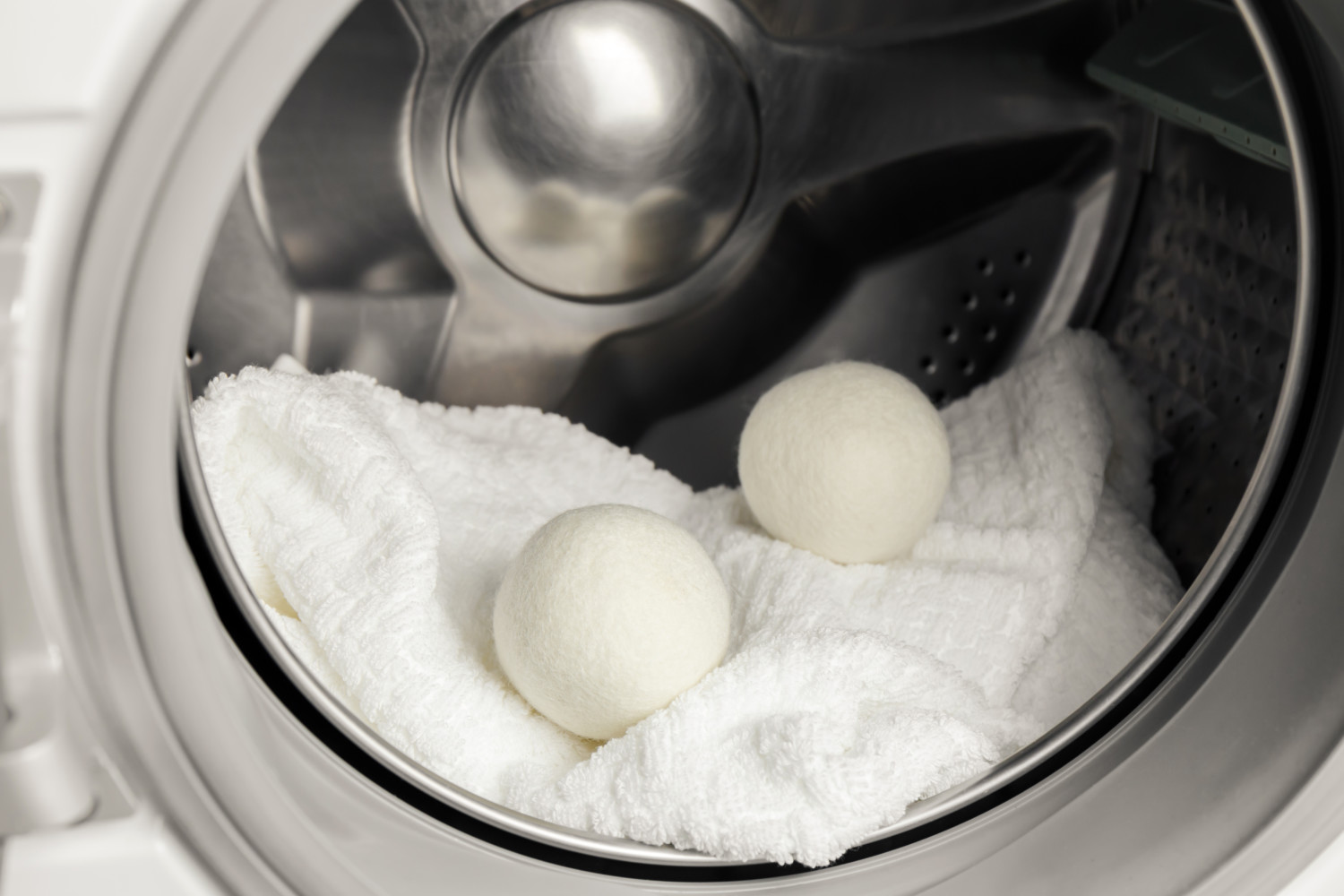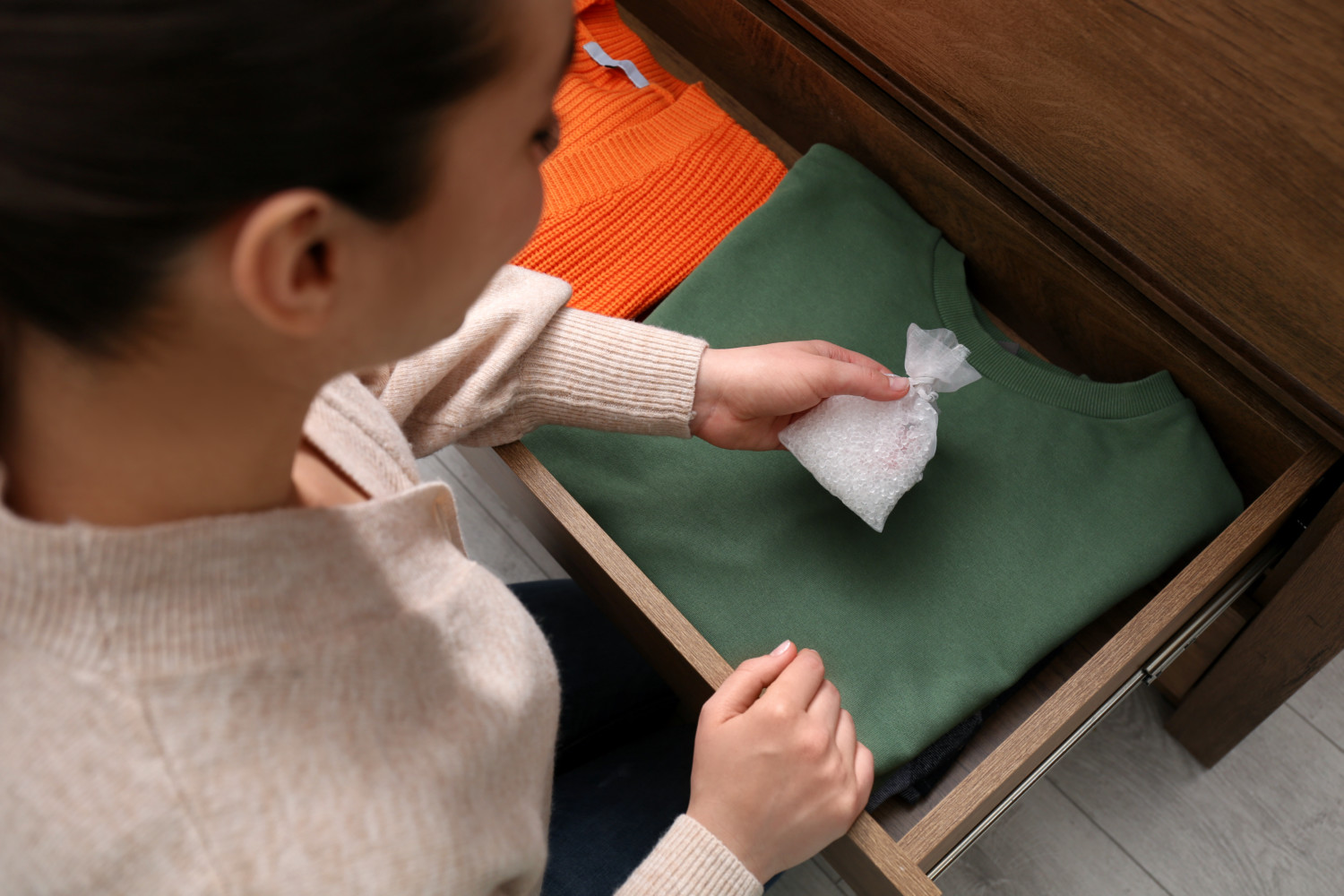The products and services mentioned below were selected independent of sales and advertising. However, Simplemost may receive a small commission from the purchase of any products or services through an affiliate link to the retailer's website.
In the early 1900s, manufacturers developed fabric softeners to help counteract the harshness of cotton fabrics produced by the dyes used during the era. The softeners were made from ingredients like corn, olive or tallow oil combined with water and soap. A thin coat of the fatty substance left on fabrics helped smooth surface fibers for a softer feeling.
These days, fabric softeners are no longer made from cooking oil, but the chemicals that are used in softeners now may cause you to wonder: Is fabric softener bad for your clothing and detrimental to your washer and dryer? Most importantly, is fabric softener bad for your health?
Is Fabric Softener Bad—For You And Your Appliances?
Fabric softener might offer results you appreciate, like softer clothing that smells nice and is less prone to static, but many experts advise against using it.
“Not only can it irritate sensitive skin, but it can also leave a layer of residue on your clothes and reduce the absorption of your towels,” Rich Handel, a test project leader at Consumer Reports who specializes in laundry, said in a TikTok video about things he would never do as a laundry expert.
@consumerreports CR test engineer Rich Handel says it’s time to free yourself from the grips of fabric softener
. Learn more at cr.org/laundry5things #laundrytok #cleantok #5thingsiwouldneverdo
Fabric softener can reduce the effectiveness of fire-resistant clothing and the wicking ability of workout clothes. It can contain a combination of chemicals that may be harmful to your health and the environment. For example, it may contain quaternary ammonium compounds known to trigger asthma, phthalates (which are potentially toxic to the reproductive system) and artificial colors that could cause cancer.
As for your home appliances, the residue left by fabric softener can lead to mold and mildew in your washing machine and build up on your dryer’s lint screen, limiting airflow and leading to longer drying times.
However, there are safer ways to attain soft, fresh-smelling, static-free clothing.
How To Soften Clothes Without Fabric Softener
Hard water is often the culprit behind clothes that feel rough or crunchy. This is because the high amount of dissolved calcium and magnesium in hard water can deposit on clothing in the wash.
“The ideal solution is to install a water softening system to your water supply. That should help with the softness,” Handel told Consumer Reports.
If that isn’t an option, try using wool dryer balls. The reusable, natural, environmentally-friendly balls of compacted wool bounce around in the dryer, pounding on clothing and linens as they dry. The result is softer fabric with less stiffness, scratchiness or crunchiness.
You can refresh dryer balls by tying each one in a sock individually, washing them in a hot water cycle and drying them in the dryer. This will help compress the fibers for more prolonged use.
Another option is to add a quarter-cup of baking soda to the washer during the rinse cycle. However, avoid using vinegar. Mixing vinegar with bleach can create noxious fumes, and the acid in vinegar can damage the door seal and rubber hoses attached to the washer.

Make Your Laundry Smell Amazing—Safely
Consumer Reports recommends using a good-smelling detergent to obtain fresh, fragrant laundry. Some of CR’s best-ranked laundry detergents for fragrance include All Baby Liquid Laundry Detergent and Persil.
“I once gave my friend a freshly washed fabric mask and she was like, ‘Oh wow, what is this detergent? This smells so good,'” Mary Beth Quirk, Consumer Reports’ shopping editor, said of Persil. “And if something is right on your face and isn’t too overpowering, that’s a good sign, right?”
Another option is to place scented sachets in closets and drawers. Small bags or fabric pouches filled with perfumed powder or potpourri can leave a soft, pleasant scent on your clothing and linens without unwanted side effects.

Other Ways To Reduce Static
Fabric softener dryer sheets can also contain harmful chemicals released into the air when heated in the dryer, so you may wish to avoid using these, even to remove static. Instead, you can hang the clothing to dry to prevent staticky results. If you can hang clothes on a line, you get the added benefits of the outdoor-fresh scent and whiter whites, thanks to the sun. Even if you use an indoor clothes drying rack, you can save money on your power bill and help your clothes last longer.
If you still want to use the dryer, wool dryer balls can help reduce static. Another option is to toss in a ball of foil. Scrunch a 3- to 4-foot length of aluminum foil into a tight ball, taking care not to leave any sharp edges that might damage fabric. The exchange of electrons in the dryer will reduce static in the clothing.

So, is fabric softener bad? Ultimately, it’s up to you to decide. But skipping the softener and incorporating these methods could prevent health issues, improve the effectiveness of your washer and dryer, increase the life of your clothing, help the environment and save you money. What’s not to love about that?
This story originally appeared on Simplemost. Checkout Simplemost for additional stories.


